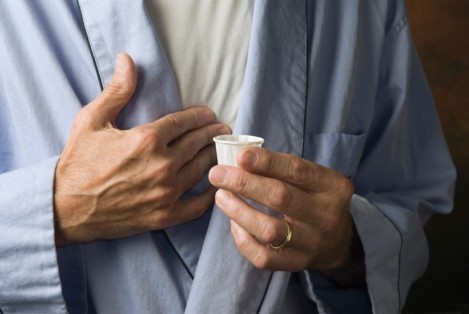There are a lot of medicines to treat heartburn, but there are things to be considered, and one of this is the risk and that you can get by taking these medicines. Check out the article we found at Health Impact News.
Heartburn drugs known as proton pump inhibitors (PPIs) are among the most commonly used drugs in the world. About 15 million Americans use PPIs, either in prescription or over-the-counter form. Brand names include Prilosec, Prevacid and Nexium.
Heartburn Drugs May Increase Your Risk of Kidney Disease
Researchers from the Johns Hopkins Bloomberg School of Health analyzed two sets of data representing more than 250,000 people.
In the first set, the 10-year absolute risk of developing chronic kidney disease was 11.8 percent among those taking PPIs compared to 8.5 percent among those not taking the drugs.
The second analysis found the 10-year absolute risk of chronic kidney disease among those taking PPIs was 15.6 percent compared to 13.9 percent among non-users.
The study left some unanswered questions, like how long those who developed kidney disease had been taking PPIs. It’s also not known how the drugs may be harming the kidneys.
PPIs Are Also Linked to Heart Risks
If you take PPIs, you should know that not only might your kidneys be at risk, but your heart may suffer as well.
After reviewing the medical records of nearly 3 million people, researchers from Stanford University in California found people with gastroesophageal reflux disease (GERD) who took PPIs had a 16 percent risk of heart attack.
A two-fold increased risk of cardiovascular mortality was also noted in PPI users.5 Such risks make sense when you consider that PPIs are known to reduce nitric oxide (NO) in your blood vessel walls.
NO has the effect of relaxing your blood vessels, so by reducing the amount of NO in your blood vessel walls, PPIs may raise your risk of a heart attack.
PPIs May Raise Your Risk of Fractures
In 2010, the U.S. Food and Drug Administration (FDA) mandated a new fracture risk warning be added to the labels of both prescription and OTC PPIs.
The safety announcement was based on a review of several epidemiological studies, which found the drugs were associated with an increased risk of fractures of the hip, wrist and spine.
The greatest risk of increased fracture risk was found in people who had taken high doses of the drugs (available only in prescription form) or had taken the prescription drugs for at least one year.
Because of this, in 2011 the FDA recalled the safety warning for OTC PPIs, stating that “an osteoporosis and fracture warning on the over-the-counter (OTC) proton pump inhibitor (PPI) medication “Drug Facts” label is not indicated at this time.”
Next Article: 4 Of The Best Natural Remedies For Heartburn
Read Full Article: Heartburn Pills Linked to Kidney Disease







Recent Comments